Jonathan Sprinkle
-
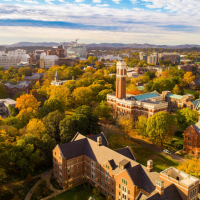
Chancellor appoints advisory group to advance innovation ecosystem
The group will build upon existing work to leverage Vanderbilt-driven research and innovation to support local community needs, attract entrepreneurial talent and venture investment, and expand our city and region’s innovation capacity. They also will examine infrastructure needs, including dedicated physical space, programs for collaboration and how to foster a culture of innovation. Read MoreJun 4, 2024
-
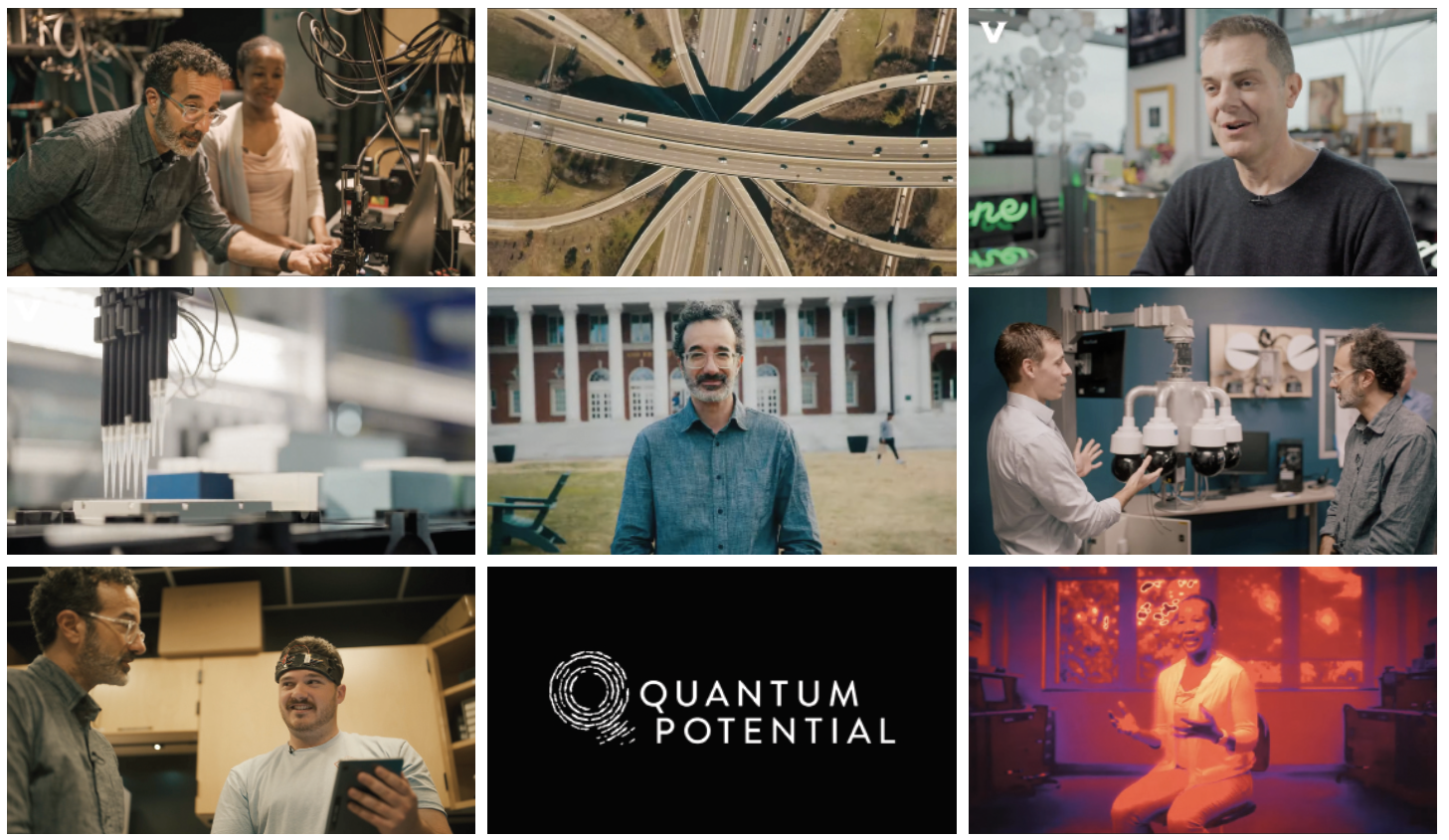
Q & A: Understanding Quantum Potential
Jad Abumrad, Distinguished Research Professor of Communication of Science and Technology and creator of Vanderbilt’s Quantum Potential series, talks to Vanderbilt Magazine about this groundbreaking project, described as a collection of wild but precise portraits of the scholars, scientists and students at Vanderbilt who are finding new ways to understand the world—and change it. Read MoreApr 22, 2024
-
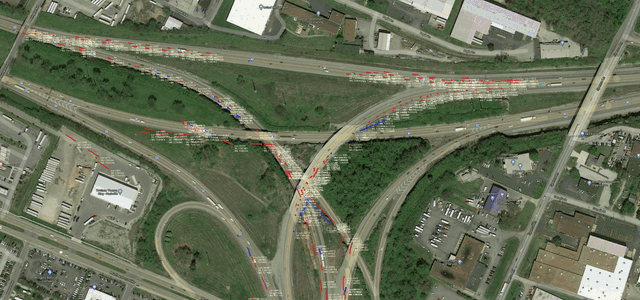
Vanderbilt highlights smart mobility research, innovative solutions at Nashville expo
Vanderbilt University will showcase its leadership in smart mobility innovation at the Tennessee Smart Mobility Expo, highlighting cutting-edge research and sustainable transportation solutions. The expo, set in Nashville's Music City Center, brings together industry experts, government officials, and researchers to explore future mobility advancements. Read MoreDec 4, 2023
-
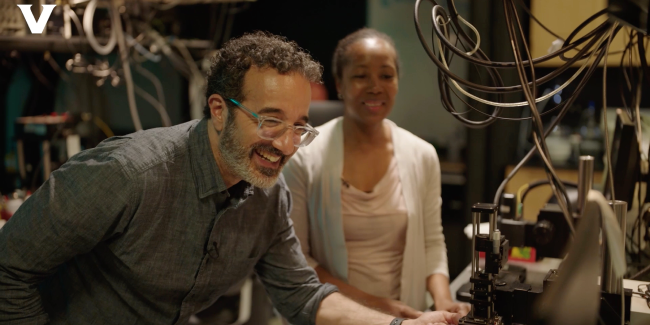
Vanderbilt University’s Quantum Potential unveiled: Meet the minds shaping our future
Quantum Potential is a collection of wild but precise portraits of the scholars, scientists and students at Vanderbilt who are finding new ways to understand the world—and change it. A premiere event will take place Oct. 11 at 6 p.m., including a screening of two short films, behind-the-scenes discussions and an immersive performance. The event is open the general public; registration is required. Read MoreOct 6, 2023
-
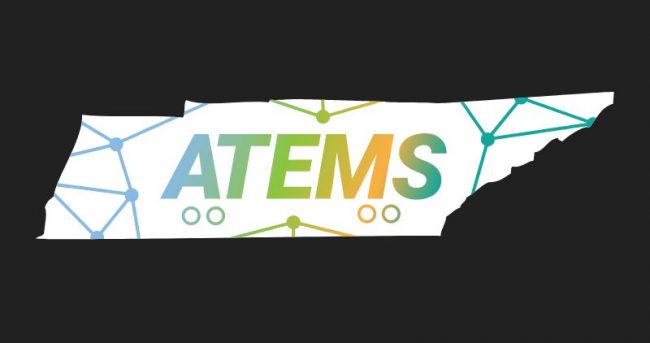
Vanderbilt joins NSF-funded coalition to shape the future of mobility in Tennessee
Vanderbilt University will serve as a core partner in the ATEMS-TN coalition being funded by the National Science Foundation’s Regional Innovation Engines program to help shape the future of mobility and usher in a new era of economic prosperity in Tennessee. Read MoreMay 18, 2023
-

AI-powered cruise control system may pave the way to fuel efficiency and traffic relief
The CIRCLES Consortium, consisting of Vanderbilt University, UC Berkeley, Temple University and Rutgers University-Camden, in coordination with Nissan North America and the Tennessee Department of Transportation, concluded a five-day open-track experiment on Nov. 18. Researchers tested an AI-powered cruise control system designed to increase fuel savings and ease traffic using 100 specially equipped Nissan Rogue... Read MoreNov 23, 2022
-

AI-powered cruise control system may pave the way to fuel efficiency and traffic relief
The CIRCLES Consortium, consisting of Vanderbilt University, UC Berkeley, Temple University and Rutgers University-Camden, in coordination with Nissan North America and the Tennessee Department of Transportation, concluded a five-day open-track experiment on Nov. 18. Researchers tested an AI-powered cruise control system designed to increase fuel savings and ease traffic using 100 specially equipped Nissan Rogue... Read MoreNov 23, 2022
-
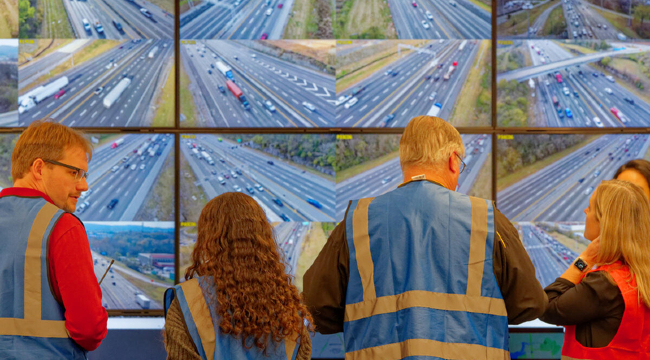
AI-powered cruise control system may pave the way to fuel efficiency and traffic relief
Vanderbilt University was part of a consortium of academic researchers, working with leading automakers, that recently concluded a five-day test on a stretch of I-24 near downtown Nashville—the largest study of its kind in the world. The researchers tested an AI-powered cruise control system designed to increase fuel savings and ease traffic. Read MoreNov 23, 2022
-
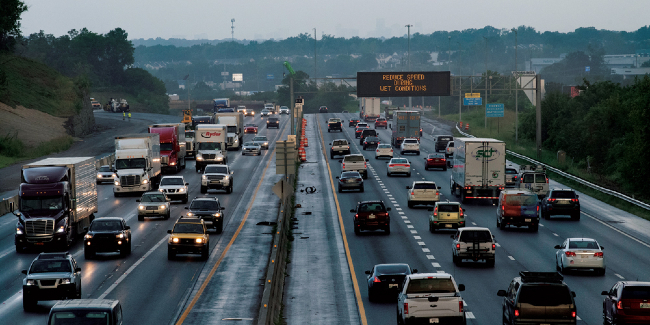
World’s largest open-track traffic experiment being conducted in Nashville Nov. 14–18
The CIRCLES Consortium, consisting of Vanderbilt University and several other universities, in coordination with Nissan North America, Toyota, GM, and the Tennessee Department of Transportation, will test 100 AI-equipped vehicles in an effort to mitigate human-caused traffic jams. Read MoreNov 10, 2022
-

Volunteer drivers needed for first-of-its-kind research project
Vanderbilt researchers are seeking up to 150 local volunteer drivers to participate in a novel traffic study using I-24 MOTION from Nov. 14 to 18. Read MoreOct 21, 2022
-

Vanderbilt computer science professor seeks to make existing car systems smarter as part of $6 million NSF grant
Vanderbilt computer science professor Jonathan Sprinkle is among seven principal investigators using a $6 million grant from the National Science Foundation to explore a new way to engineer cyber-physical systems. Examples of CPSs include smart power grids, implantable medical devices and transportation technology such as self-driving cars, which are the focus of the five-year, multi-institutional project. Read MoreJul 27, 2022
-

Technologies can help drivers maintain the two-second rule to improve road safety and traffic flow
A team of engineers led by Dan Work, associate professor of civil and environmental engineering, has developed an assistive technology to help drivers maintain "the two-second rule," taught in driver’s ed classes across the country, to smooth out traffic jams and improve safety. Read MoreSep 14, 2021
-

Lane Change: Vanderbilt experts say the future of urban transportation relies not on one solution, but on many
Self-driving cars. Ride shares. Electric bikes and scooters. The future of transportation, experts say, won’t include just one mode, but instead many. Depending on your point of view, that’s either a welcome relief or a nightmare. Read MoreOct 30, 2019